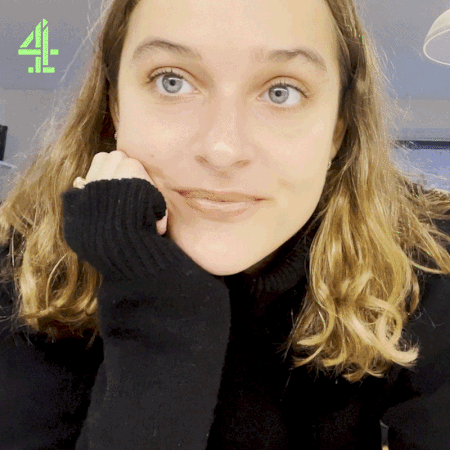“Showing The Highs On Camera Was So Freeing” – Model And Activist Rosie Viva On Her Bipolar Documentary
“The first time I spoke with other young people who had bipolar, it was a breakthrough,” explains Rosie Viva. “It was the first time I wasn’t scared of it anymore. I accepted it. My opinion of myself did a complete 180.”

Viva – a London-based model, mental health activist and now filmmaker – has just completed a documentary about her bipolar disorder. It’s her second time tackling the topic on screen. The first was a personal project, crafted largely during lockdown; a raw and intimate attempt by a young woman to understand herself through the experiences of others also living with the condition. The second is the TV production Modelling, Mania And Me. It is slicker, perhaps, but no less exposing. Yet for all the apparent hardships of being filmed at some of her lowest ebbs, Viva found the experience liberating.
“What was quite nice was being able to show the highs of bipolar,” she explains. “There’s still a lot of secrecy around that. I’ve always felt more shame about my highs than my lows, as society finds those more difficult to understand. A lot of people can resonate with lows and try to give advice, but they don’t ‘get’ the high part. Showing the highs on camera was so freeing.”
Her story feels made for the screen: a beautiful young model is arrested at London Stansted airport for jumping on the baggage drop-off desks and hitting the fire alarm. You couldn’t make it up. Following this incident four years ago, Viva was hospitalised. Her mania – which she previously believed to be high-anxiety – was finally diagnosed. She then received three months of inpatient care and began her road to recovery.
Yet, what is most interesting about Viva’s narrative is not its dramatic beginnings, but the nuance of her journey. “When you make a documentary, [the producers] want a neat ending,” she says. “My struggle has always been trying to explain that this is something I will manage for the rest of my life. There is no ending. This is me.”
Viva acknowledges that many people might wait until later in life to retrospectively tell their story. But she felt it important to show herself still figuring out who she is, in the hope of providing relatable solace for other young people in similar positions. “I’m really happy with life right now because I understand myself more,” she says. “I know when my low ebbs mean it’s the bipolar talking and I am at peace with it.”
She hopes the documentary highlights symptoms of bipolar, so that someone who hasn’t yet been diagnosed might watch it and get help. “Having gone through what I have, it gives you a new appreciation of everything,” she says. “You know what serves you in life and makes you safe and happy and you gravitate towards that. I used to think my diagnosis meant I wasn’t normal, now I think my old way of thinking was abnormal. My diagnosis saved me – now I am in a new normal.”
Watch Modelling, Mania And Me on Channel 4 YouTube Documentaries now
Marie-Claire Chappet is a London-based arts and culture journalist and contributing editor at Harper’s Bazaar




